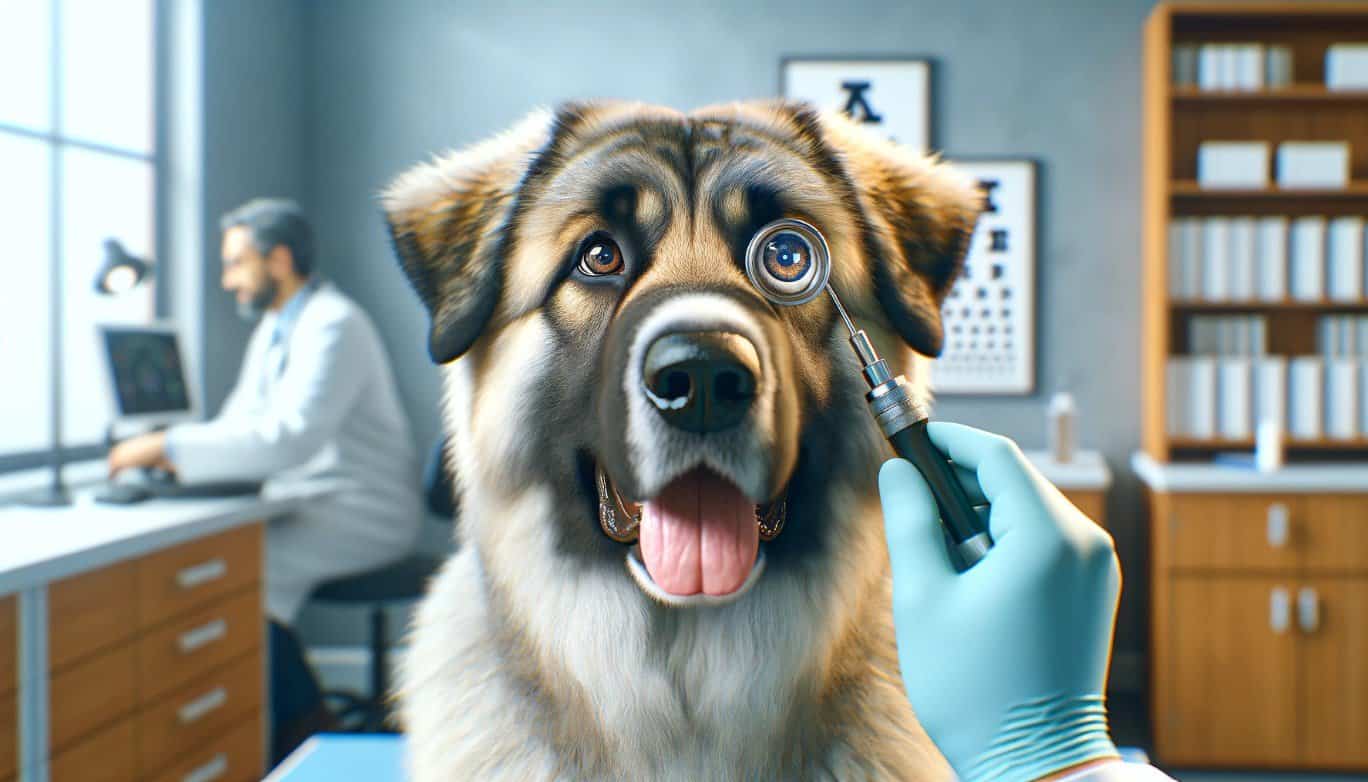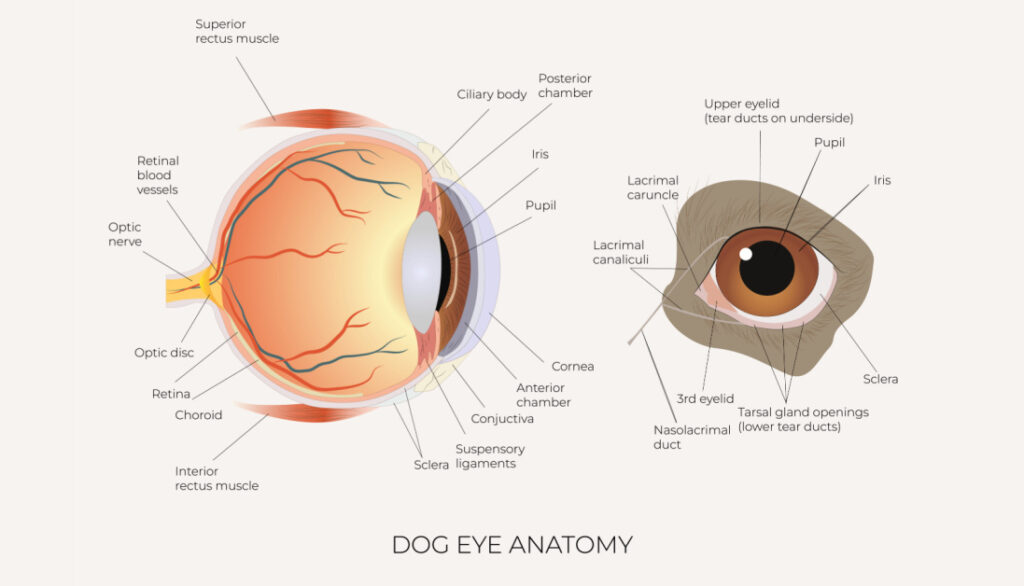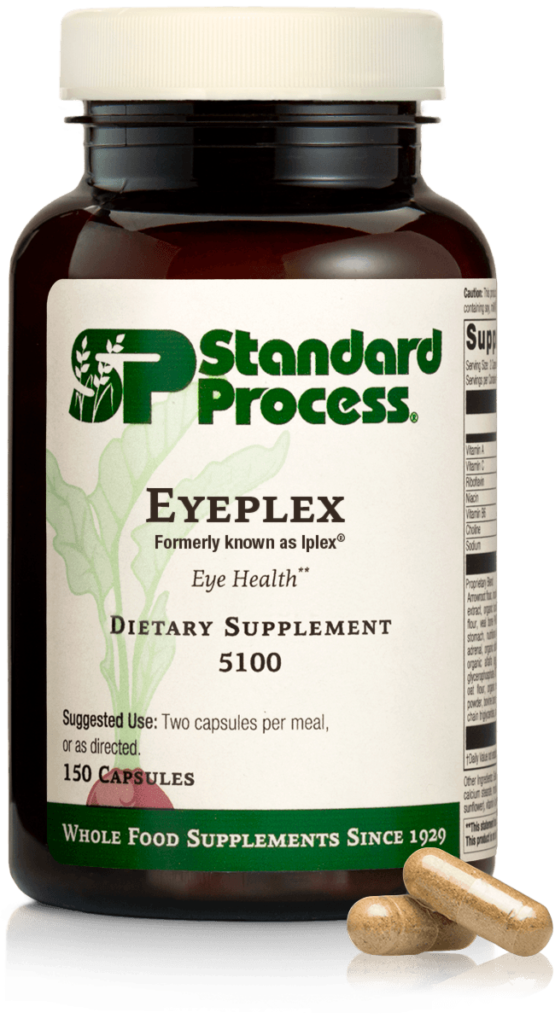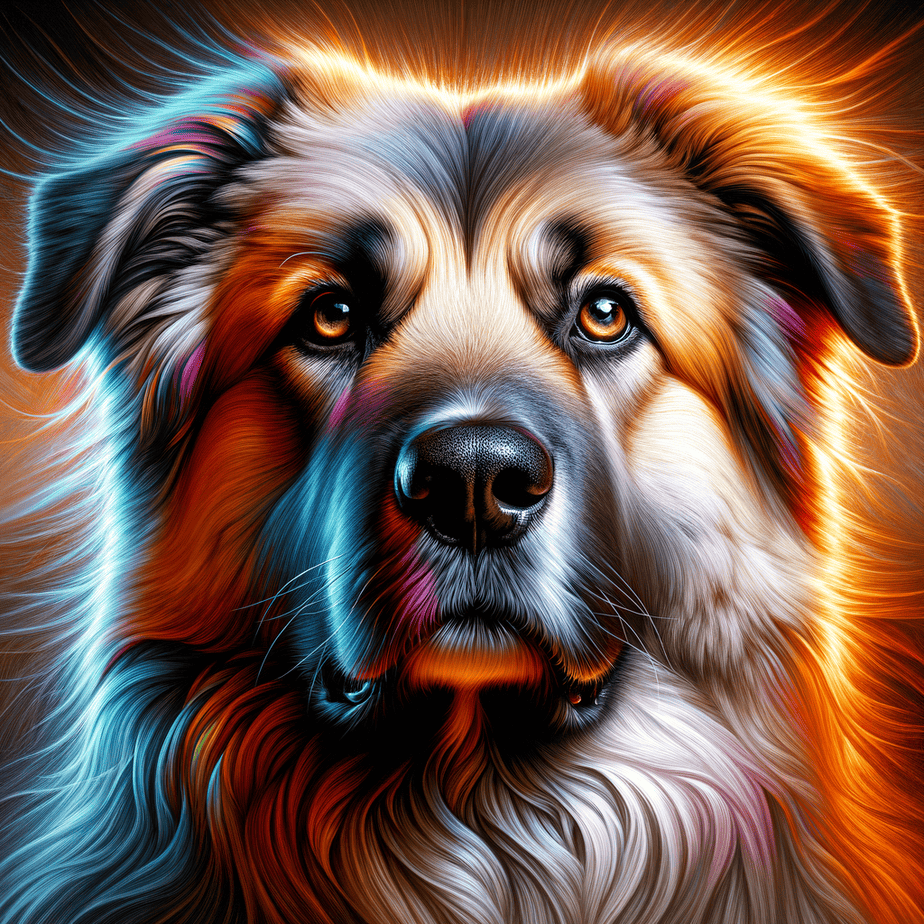As a holistic veterinarian, I’ve had the pleasure of meeting many Anatolian Shepherd Dogs and their caring parents. These majestic dogs, known for their loyalty and protective nature, are a joy to work with. However, like any breed, they have their unique health concerns. One aspect of their health that often gets overlooked is their eye health.
When we talk about Anatolian Shepherd Dog Eye Health, we are referring to a variety of conditions that can affect this breed. From common issues like conjunctivitis to more serious conditions like Progressive Retinal Atrophy, Anatolian Shepherd Dogs can be susceptible to a range of eye health problems. But don’t worry, as a responsible pet parent, there are many things you can do to help maintain your dog’s eye health.
In this article, we’ll explore the unique eye structure of Anatolian Shepherd Dogs, discuss common eye health issues, and share preventative measures you can take. We’ll also delve into the importance of environmental hygiene and routine eye care and maintenance. So, whether you’re a seasoned Anatolian Shepherd owner or considering adopting one, this article will equip you with the knowledge you need to ensure your dog’s eyes remain healthy and bright.
Remember, our furry friends rely on us to look after them. By understanding and addressing “Anatolian Shepherd Dog Eye Health” issues, you can provide the best care for your loyal companion. Let’s get started!

Understanding Breed Specific Eye Structure
Anatolian Shepherd dogs, known for their intelligence, bravery, and loyalty, possess a unique eye structure that sets them apart from other breeds. Their almond-shaped eyes, typically dark brown to light amber in color, are one of their most distinctive features. These eyes are set well apart and deep into their skull, giving them an intense and alert expression.
What’s more, these dogs have a third eyelid, also known as the ‘haw,’ which is a thin, nictitating membrane located in the inner corner of the eye. This extra eyelid serves to protect the eyes from dust and debris, particularly crucial for a breed initially bred for guarding livestock in harsh Anatolian terrains.
The cornea, the clear, outermost layer of the eye, is also unique in Anatolian Shepherd dogs. It is thicker and more robust than in many other breeds, providing an extra layer of protection against eye injuries. These dogs also have a well-developed tear film that keeps their eyes moist and healthy.
However, the unique eye structure of Anatolian Shepherds also means they are prone to certain breed-specific eye issues. For instance, their deep-set eyes and thick corneas can sometimes lead to the development of eye conditions such as entropion, where the eyelid rolls inward, causing discomfort and potential damage to the cornea.
Understanding the unique eye structure of your Anatolian Shepherd is the first step towards ensuring their eye health. By being aware of their specific eye characteristics, you can better monitor their eye health, identify any potential issues early on, and seek timely veterinary care. Remember, when it comes to your Anatolian Shepherd’s eyes, prevention is indeed better than cure.

Common Eye Issues In Anatolian Shepherd Dog
As a veterinarian, I’ve seen a variety of eye health issues in Anatolian Shepherd Dogs. This breed is known for its strength, intelligence, and loyalty, but like any breed, they have their unique health concerns. Let’s take a closer look at the common eye issues that can affect your Anatolian Shepherd’s eye health.
Progressive Retinal Atrophy (PRA)
PRA is a genetic condition that causes the cells in the retina to deteriorate over time, leading to blindness. It’s a slow-progressing disease, so early detection can help manage the condition and slow its progression. If you notice signs such as night-blindness, a shine to the eyes, or changes in eye color, consult a vet immediately.
Entropion
Entropion is another common issue that affects Anatolian Shepherd Dog Eye Health. It’s a condition where the eyelid rolls inward, causing the lashes to rub against the cornea, leading to irritation, redness, and potential corneal damage. This issue often requires surgical correction.
Cataracts
Cataracts are a clouding of the lens in the eye, leading to impaired vision or blindness. It’s common in older dogs but can also occur due to genetics or trauma.
- Signs: Cloudy, bluish, or white appearance of the eyes.
- Treatment: Surgery is often necessary to restore vision.
Cherry Eye
Cherry eye is a condition where the gland in the dog’s third eyelid prolapses and becomes visible. It appears as a red, swollen mass in the corner of the eye.
- Signs: Swelling in the corner of the eye, redness, tearing.
- Treatment: Surgery is usually required to correct this condition.
While these are some of the common eye issues impacting Anatolian Shepherd Dog Eye Health, remember that regular check-ups and early detection are key to preventing and managing these conditions. Always consult your vet if you notice any changes in your dog’s eyes or behavior.

Prevention of Eye Problems in Anatolian Shepherd Dogs
Ensuring your Anatolian Shepherd gets the right nutrients for optimal eye health is essential for maintaining clear vision and preventing age-related issues. Natural, nutrient-rich foods and supplements can play a key role in supporting their eyesight. From vitamin A-packed freeze-dried liver treats to antioxidant-rich blueberries and targeted supplements like Eyeplex by Standard Process, there are several ways to nourish your dog’s eyes. In this section, we’ll explore how these powerful ingredients contribute to long-term vision health and overall well-being.
Eyeplex by Standard Process
Eyeplex by Standard Process is a specialized supplement designed to support your Anatolian Shepherd’s eye health with a blend of essential nutrients. Formulated with key vitamins, minerals, and antioxidants, Eyeplex helps protect against oxidative stress, supports retinal function, and promotes overall vision health. Ingredients like vitamin A, vitamin C, and zinc contribute to maintaining strong eyesight, while whole food ingredients provide additional phytonutrients for cellular protection. Adding Eyeplex to your Anatolian Shepherd’s diet can be especially beneficial for aging dogs or breeds prone to eye conditions, offering targeted nutritional support to keep their vision sharp and healthy for years to come.

Freeze-Dried Blueberries
Freeze-dried blueberries are a powerhouse of antioxidants that can help protect your Anatolian Shepherd’s eyes from oxidative stress and age-related damage. Rich in vitamins C and E, as well as anthocyanins, these tiny but mighty berries help combat free radicals that can contribute to eye diseases like cataracts and macular degeneration. Incorporating freeze-dried blueberries into your dog’s diet provides a natural and delicious way to support retinal health, reduce inflammation, and promote overall vision longevity. Plus, they’re a low-calorie, dog-friendly treat that makes a great addition to a balanced diet for long-term eye health.

Freeze-Dried Liver
Freeze-dried liver treats are an excellent natural source of vitamin A, an essential nutrient for your Anatolian Shepherd’s eye health. Vitamin A plays a crucial role in maintaining good vision, especially in low-light conditions, while also supporting overall immune function and skin health. Since liver is rich in bioavailable vitamin A, incorporating freeze-dried liver treats into your dog’s diet provides a convenient and nutritious way to promote optimal eye function. Just be sure to feed them in moderation, as excessive vitamin A can lead to toxicity. Adding these nutrient-packed treats to your pup’s routine is a simple, tasty way to support their long-term vision and well-being!

By prioritizing your Anatolian Shepherd’s eye health through a balanced diet and nutritional supplements, you can help prevent many common eye issues. These simple steps can go a long way in ensuring your pup’s eyes stay healthy and clear for years to come.
Environmental Hygiene to Reduce Eye Problems
When it comes to maintaining your Anatolian Shepherd Dog’s eye health, environmental hygiene plays a crucial role. It’s not just about what they eat or the supplements they take, but also about the environment they live in. Here are some factors to consider:
Indoor Air Quality
Indoor air quality has a significant impact on your Anatolian Shepherd’s eyes. Dust, dander, smoke, and other airborne particles can irritate their eyes, leading to redness, itchiness, and even infections. To ensure good indoor air quality:
- Keep your home clean and dust-free. Regular vacuuming and dusting can help reduce the amount of irritants in the air.
- Consider using an air purifier. These devices can help remove allergens and other harmful particles from the air.
- Avoid smoking indoors. Secondhand smoke is not only harmful to your dog’s lungs, but also their eyes.
Sprays, Diffusers, Candles, Incense
While we humans may enjoy the scent of a freshly lit candle or the soothing aroma of incense, these can be harmful to your Anatolian Shepherd’s eyes. Similarly, sprays and diffusers can also contain chemicals that may cause eye irritation. Here’s what you can do:
- Use unscented candles or those made from natural materials like beeswax or soy.
- Avoid using air fresheners and diffusers, especially in areas where your dog spends a lot of time.
- Choose pet-friendly cleaning products. Many conventional cleaning products contain harsh chemicals that can irritate your dog’s eyes.
By paying attention to these environmental factors, you can help prevent eye problems and ensure your Anatolian Shepherd Dog’s eye health remains in top condition.

Just like us humans, our furry friends also require a regular routine to maintain good health, especially when it comes to their eyes. Anatolian Shepherd Dog eye health is a crucial aspect that requires attention and care. So, let’s discuss the daily and weekly care and maintenance for your Anatolian Shepherd’s eyes, as well as the importance of monitoring hair and nail length, and bath frequency.
Daily & Weekly Care & Maintenance
Regular check-ups are essential to maintain the eye health of your Anatolian Shepherd Dog. Here are some steps you can follow:
- Inspect their eyes daily: Look for any signs of redness, cloudiness, or discharge. If you notice anything unusual, consult your vet immediately.
- Clean their eyes gently: Use a soft, damp cloth to wipe away any dirt or discharge from the corners of their eyes. Always wipe from the inside corner of the eye outward and use a different area of the cloth for each eye to prevent spreading any potential infection.
- Trim the hair around their eyes: Long hair can irritate the eyes and cause infection. Regular trimming can help prevent this. However, be very careful not to cut too close to the eye.
Monitor Hair Length, Nail Length, Bath Frequency
Proper grooming is another important aspect of maintaining your Anatolian Shepherd’s eye health.
- Monitor hair length: Long hair can obstruct your dog’s vision and irritate their eyes. Regular trimming can help keep their sight clear and eyes healthy.
- Keep their nails trimmed: Long nails can cause your dog to scratch their eyes accidentally. Regular nail trims can help prevent this.
- Regular baths: Regular baths can help keep your dog clean and prevent infections. However, be careful not to get soap or shampoo in their eyes as it can cause irritation. Always use dog-friendly products and try to keep bath water out of their eyes.
Remember, your Anatolian Shepherd’s eyes are a window to their overall health. Regular eye care and maintenance can help keep them healthy and happy. Always consult with your vet if you notice any changes in your dog’s eyes or behavior.
By following these steps, you can ensure that your Anatolian Shepherd Dog’s eye health is always at its best. Remember, early detection and treatment of any potential eye issues can save your dog from discomfort and prevent serious complications.
Frequently Asked Questions
1. What are common eye health conditions in Anatolian Shepherd Dogs?
Common eye health conditions in Anatolian Shepherd Dogs include entropion, ectropion, cherry eye, cataracts, and progressive retinal atrophy.
2. What is entropion?
Entropion is a condition where the eyelid rolls inward, causing the eyelashes to rub against the cornea. This can lead to irritation, redness, and potential corneal ulcers.
3. How is entropion treated in Anatolian Shepherd Dogs?
Entropion in Anatolian Shepherd Dogs can be treated through surgical correction. The procedure involves tightening the eyelid muscles to prevent the eyelid from rolling inward.
4. What is cherry eye?
Cherry eye is a condition where the gland of the third eyelid prolapses, causing a red, fleshy mass to protrude from the corner of the eye. It is typically seen in young dogs.
5. How is cherry eye treated in Anatolian Shepherd Dogs?
Cherry eye in Anatolian Shepherd Dogs is usually treated through surgical removal or repositioning of the prolapsed gland. This helps to prevent further irritation and potential complications.
